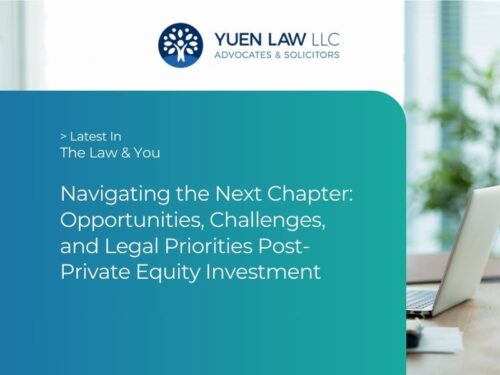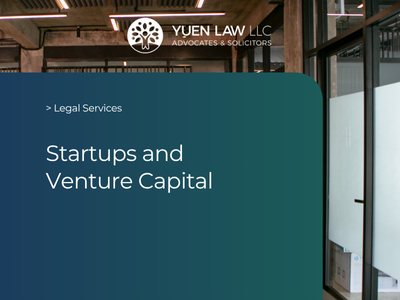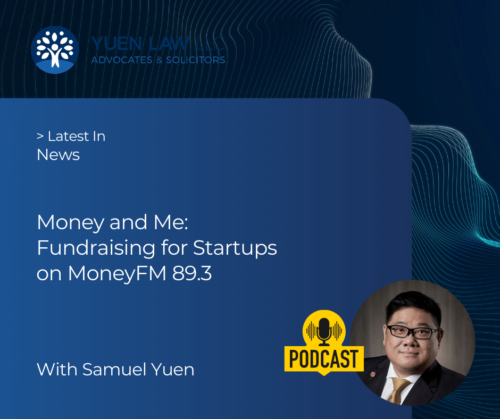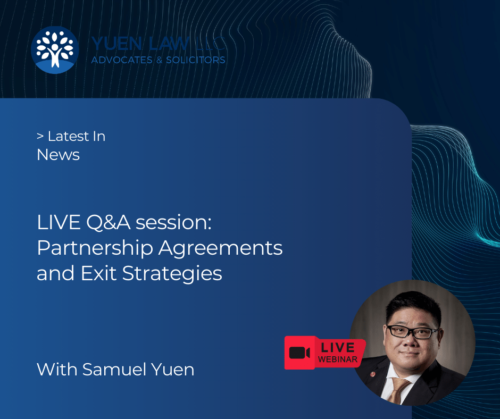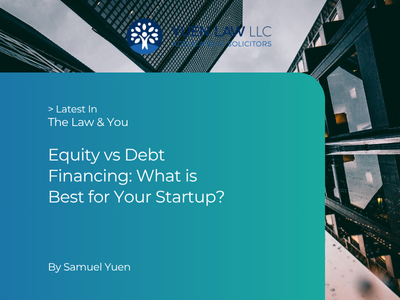Table of Contents

What are Convertible Bonds?
Convertible bonds, also referred to as convertible notes, are a type of debt financing tool that a company can use to raise funds.
In a nutshell, bonds or notes are issued to interested investors, who loan a specific sum of money to a company. Debt financing therefore creates a debtor-creditor relationship between the company and its investor. From the point of view of the investee company, money is borrowed from the investor for a set period of time, with a guarantee that the investor will eventually receive this principal sum back plus interest.
Some bonds are convertible, meaning that after a period of time (i.e. when the bond matures), the investor can choose to convert the bond into shares of the company. Upon conversion, the investor will become a shareholder of the investee company.
Why Use a Convertible Bond to Fundraise
Benefits of Convertible Bonds for the Startup
There are several benefits of choosing debt investments as a means of raising funds. The investee company can enjoy more control and autonomy over the operations of its business, as bondholders will not be able to influence or interfere with decision-making processes. Bond Holders do not receive dividends declared from profits made. They cannot vote on major decisions affecting the company, unless otherwise agreed upon contractually. As such, the control still lies in the hands of the incumbent shareholders and owners of the company.
Such an investment offering is also attractive for investee companies as such offerings, are typically offered at a reduced cash interest payment, furthermore if the investor converts his investment into share, the company’s debt vanishes.
Benefits of Convertible Bonds for the Investor
From the viewpoint of the investor, a convertible bond investment can be beneficial as it often comes with a return, at a predetermined interest rate. Once the bond matures, the return on investment is often guaranteed, and the investor receives the principal sum with added interest. Conversely, shareholders (equity investors) only receive a return on their investment if the company declares dividends, and this is subject to the performance and profitability of the business.
The fact that the bond is convertible may also be a plus point for investors, as they can make the choice to convert their bond into shares and become shareholders of the company. This is an ideal option especially if the business has been proven to be successful and stable, and investors would like to share in future profits.
Additional Considerations when using a Convertible Bond
Investors may request for additional rights, above what an ordinary bondholder may enjoy. These rights would need to be negotiated beforehand, and agreed upon contractually.
The investee company should weigh the options and consider the implications of granting these rights, as it may mean that the investors have greater say and control in the manner the company is managed.
For example, investors may request for the right to be consulted before a major company decision is made, or even for the right to veto on such matters. Further, investors may also seek to be informed with regard to company financial matters by requesting for periodic company financial reports, so as to have a better gauge on the overall health and stability of the business.
A pertinent consideration that the company and its incumbent shareholders must note is that by using debt financing with convertible bond, the incumbent shareholders’ shareholder will be diluted when these bond holders eventually convert their bonds into shares.
Features of Convertible Bonds or Convertible Notes
There are several features or terms of convertible notes that should be agreed upon, following negotiation and discussion between the investor and investee company. Once an agreement is reached, a legally binding contract is signed.
Value and Interest Rate
Both parties must agree on the value of the bond, its interest rate, and the date of maturity. This would relate to how the interest will be calculated (i.e. simple or compound interest), and when the investor can expect to receive his/her money back.
Conversion of the Bond
Another important aspect to consider is the process of conversion of the bond, and its terms.
The investor and investee company will agree on a conversion formula or conversion ratio – which spells out the value of the bond in terms of number of shares that can be received. Sometimes, investors also enjoy a discount when converting their bond into shares when the date of maturity arrives. For example, the shares of Company X are valued at $1 each. However, the terms of the contract state that upon maturity, a 20% discount for conversion would be provided. As such, the investor will be able to trade in his/her invested sum for shares of the company at a discounted rate of $0.80 each.
Both the investor and investee company will also reach an agreement with regard to redemption rights. Essentially, all bondholders can exercise the right to redeem their bonds and receive their money back when the date of maturity arrives.
The right to redeem and right to convert are typically mutually exclusive.
Events of Default
There are instances when a bond can be redeemed (i.e. converted into principal sum) ahead of the date of maturity. Early redemption can be triggered when there are ‘events of default’. It could be the case that the company declares bankruptcy, breaches its contractual agreements, or is unable to maintain business operations.
To protect the interests of bondholders, contracts between investors and investee companies will usually list out explicitly what constitutes an event of default, and even include clauses that specify when early redemption can be activated.
For assistance regarding convertible bonds, do contact us to make an appointment.

